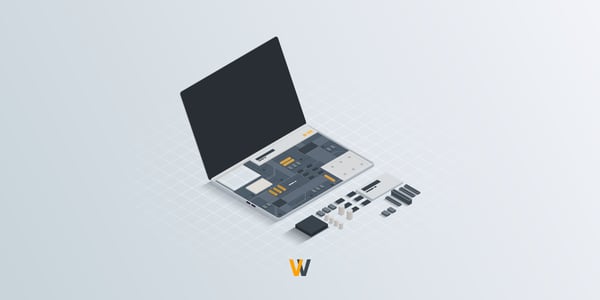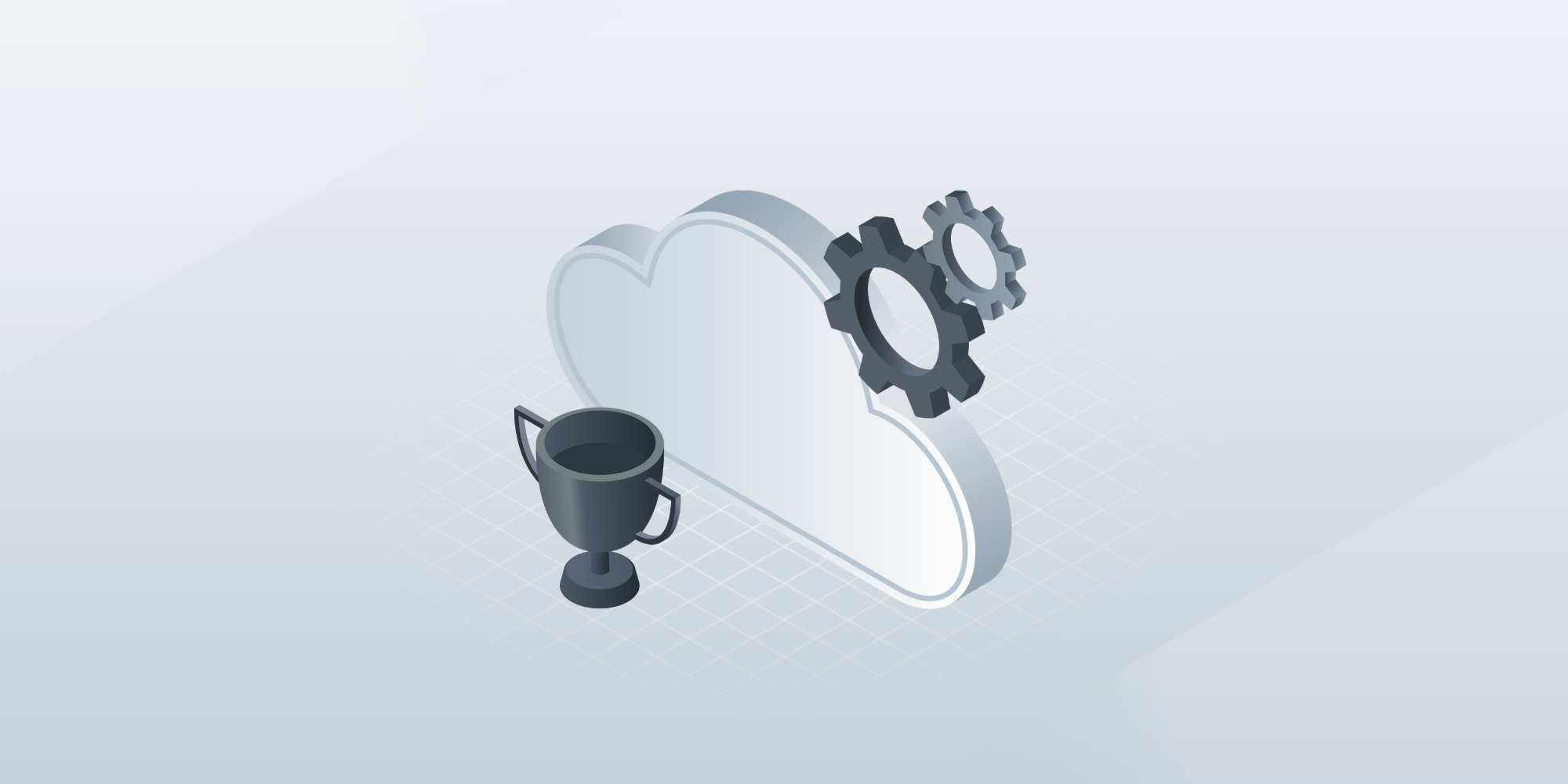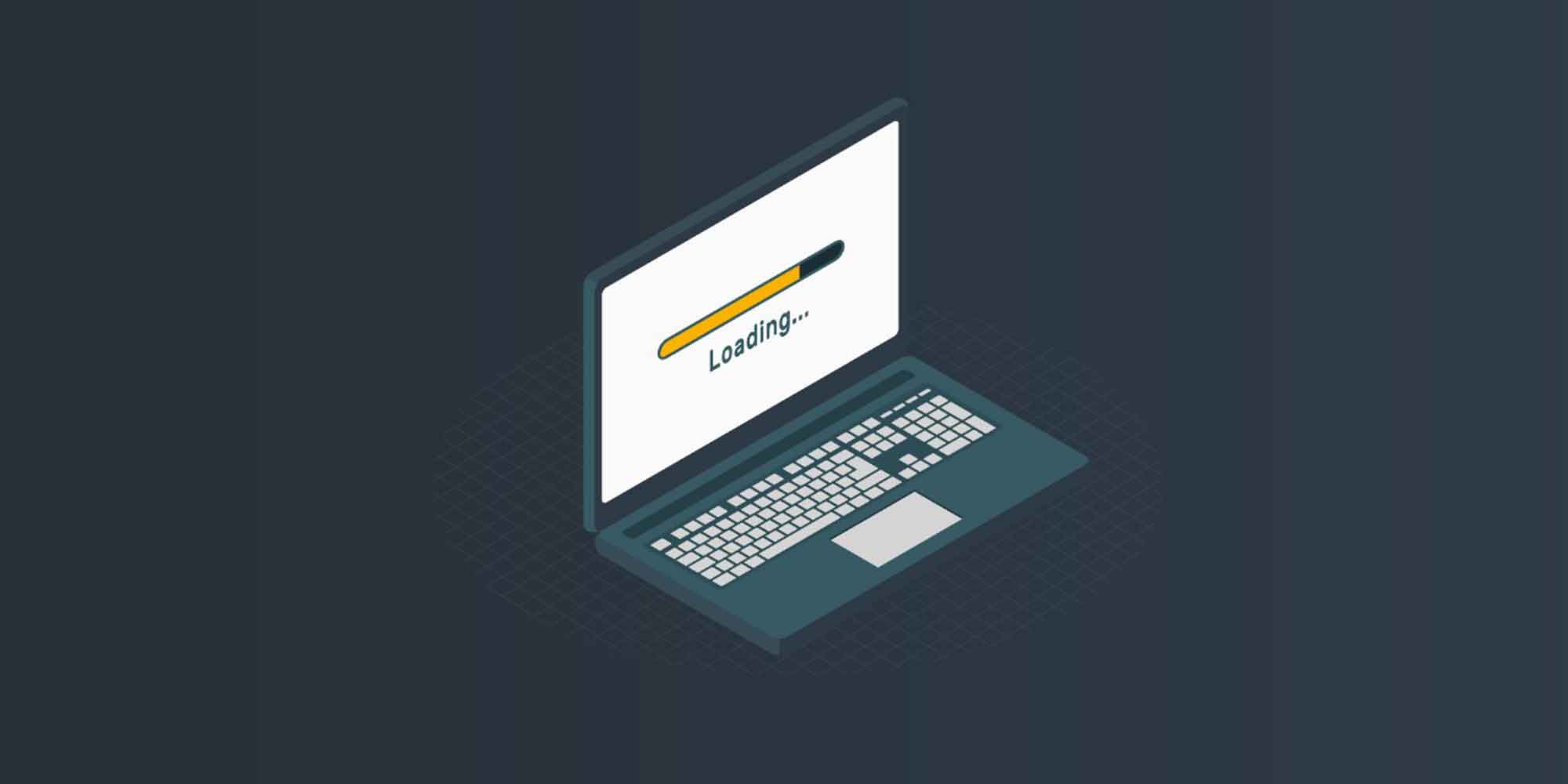Laptop management for remote teams: Complete guide to follow
 GroWrk Team
GroWrk Team
To effectively manage company laptops, businesses need comprehensive strategies that encompass three key areas: onboarding, retrieving, and storing. These processes must be enabled and supported by robust laptop management software. Managing operating systems, handling access requests, and securing corporate resources are critical components of these strategies.
For a remote team to succeed, businesses must provide not only the right tools for video conferencing and project management but also efficient IT asset management solutions. These solutions ensure that all employee devices are properly configured, secure, and managed throughout their lifecycle, protecting sensitive corporate resources and enhancing productivity.
Additionally, having an employee laptop agreement form is essential. This form outlines the responsibilities and expectations regarding the use of company laptops, ensuring that all team members working remotely understand their obligations and the security protocols they must follow.
How do you manage laptops remotely with device management software?
Managing company devices for remote teams is crucial to maintaining productivity and security. Utilizing laptop management software simplifies the process, ensuring that all devices are properly configured, up-to-date, and secure. Here’s how you can effectively manage laptops remotely with device management software:
1. Centralized control and monitoring
Laptop management software provides a centralized platform where IT administrators can oversee all employee devices. This software allows you to track the status, location, and health of each laptop in real-time. With centralized control, you can ensure that all devices comply with company policies and security standards.
2. Automated software deployment and updates
One of the key features of managing employee laptops is the ability to automate software installations and updates. Instead of manually configuring each laptop, the software can push necessary applications, security patches, and updates to all devices simultaneously. This not only saves time but also ensures that all laptops are running the latest versions of essential software, reducing the risk of security vulnerabilities.
3. Enhanced security measures
Security is a top priority when managing mobile devices. Device management software enables you to implement and enforce security protocols such as disk encryption, antivirus protection, and firewall settings. Additionally, features like remote wipe and lock capabilities ensure that sensitive data remains secure if a laptop is lost or stolen. You can also set up multi-factor authentication (MFA) and secure VPN connections to protect corporate data transmitted between remote workers and the company network.
4. Simplified device setup and configuration
When onboarding new employees, device management software streamlines the process of setting up and configuring their laptops. IT administrators can create standard configurations that include necessary software, security settings, and access permissions. This ensures that new laptops are ready for use right out of the box, enhancing the onboarding experience and reducing downtime for employees working remotely.
5. Remote troubleshooting and support
Device management software includes tools for troubleshooting and providing technical support. IT teams can remotely access and control laptops to resolve issues, perform diagnostics, and assist employees with technical problems. This capability is especially important for remote workers, as it eliminates the need for in-person support and minimizes disruptions to workflow.
6. Policy enforcement and compliance
Ensuring compliance with company policies and regulatory requirements is easier with device management software. You can enforce policies related to software usage, data access, and security settings across all laptops. The software can also generate reports and alerts to help you monitor compliance and address any violations promptly.
7. Employee laptop agreement form
As part of your strategy, it’s important to have employees sign a laptop agreement form. This document outlines the responsibilities and expectations regarding the use of company laptops. It typically includes clauses about proper usage, security protocols, and consequences for non-compliance. Having a signed agreement helps protect the company and ensures that employees understand their obligations.

Common pitfalls of laptop management for remote teams
Company data security can be at risk when remote workers use their work laptops for personal purposes. Cybercriminals can launch phishing attacks against personal email addresses, providing access to a corporate network when opened on a work laptop.
The widespread use of cloud services and various apps increases the risk of cyberattacks. Without proper laptop management, IT managers struggle to protect their devices and maintain compliance with data protection regulations.
One of the important steps companies can take to ensure data security is the regular use of a cybersecurity audit checklist. No matter the size of the company, there are always common pitfalls in laptop management, such as:
- Compliance issues
- Inventory management issues
- Cost optimization
- Ensuring secure access to company data
- Protecting against data theft for a lost or stolen laptop
- Providing users with tools and accessories for proper care
- Retrieving laptops from former employees

Compliance issues
A lot of countries have stringent laws in place to compel companies to provide the right tools that their remote teams need to carry out their jobs effectively as well as protecting customer data.
Compliance issues can arise when there are no security measures in place to protect this data or the company doesn't provide its remote employees with secure devices.
Laptop inventory management issues
The primary purpose of a laptop inventory system is to keep an accurate record of laptops owned by the company and to map what assets are with which employees.
This is necessary for managing remote teams and understanding what software is being used on each device. Good IT asset inventory management will lead to an increase in productivity, cost optimization, and team management.
Cost optimization
Good laptop management can help ensure disciplined spending habits and cost reduction. An excellent strategy to achieve this is by employing a VMI system that shifts laptop management's responsibilities from a team member or team members to secondary companies such as GroWrk.
Ensuring secure access to company data
It is no news that remote workers are the number one target of cybercriminals looking to access companies' data. While it is important to ensure data is readily available for ongoing business needs, it is more important to prioritize safety.
Also, check: How to set up secure laptops for employees working remotely
Protecting against data theft for a lost or stolen laptop
According to Forrester, 15% of data breaches result from a lost or stolen laptop. A common pitfall for data security is misplaced laptops, resulting in data theft. Good laptop management can protect against data theft and ensure that company information is safe when a laptop is stolen.
Issues with repairing and maintaining laptops
Providing equipment to remote employees is only one part of the laptop management loop. Many companies are oblivious to repairs and maintenance.
Wear and tear are inevitable in existence. It is a company's responsibility to plan repairs and maintenance for their remote workforce's devices after prolonged use.
An effective way to do this is by working with third-party companies like GroWrk that have a network of warehouses around the globe that can store and repair laptops regardless of where a team member is located.
Issues with retrieving laptops from former employees
Laptop retrieval from ex-employees can be difficult, especially when they are disgruntled. According to Gaebler, over 9 million company laptops in 2020 must be returned to employers in the United States.
The pandemic and working from home have made the retrieval process further difficult and have emboldened employees to hold on to company assets, which cost companies thousands of dollars to replace.
Did you know that in 2021, Asurion paid $300,000 to a disgruntled employee who stole a company laptop, exfiltrated data, and posed as an anonymous ransomware hacker?
Good digital asset management skills, a comprehensive remote work policy, and an employee equipment agreement can solve all these problems. However, no one-size-fits-all solution exists, as no two companies experience the same laptop management issues.

How to manage company laptops for remote teams
Managing company laptops for remote teams is crucial to maintaining productivity and security. Utilizing the right software simplifies the process, ensuring that all devices are properly configured, up-to-date, and secure. Here’s a look at different types of software that can help manage company laptops effectively:
-
Mobile Device Management (MDM): MDM solutions help IT administrators manage and secure laptops and other mobile devices. They offer features such as remote configuration, software deployment, policy enforcement, and security management to ensure that devices are compliant with business standards.
-
Unified Endpoint Management (UEM): UEM software provides a comprehensive approach to managing all endpoints, including laptops, desktops, and mobile devices, from a single platform. This type of software integrates traditional client management tools with MDM capabilities, allowing for seamless management of all hardware.
-
Endpoint Protection Platforms (EPP): EPP software focuses on security by providing advanced measures like antivirus, anti-malware, and firewall protections. These platforms are essential for safeguarding laptops against cyber threats and maintaining the integrity of business data.
-
Endpoint Detection and Response (EDR): EDR solutions offer advanced threat detection and response capabilities. They monitor laptops for suspicious activity, provide detailed insights into potential security incidents, and enable rapid remediation to protect sensitive business data.
-
Patch Management Software: This type of software automates the process of deploying software updates and security patches across all company laptops. Keeping operating systems and applications up-to-date is critical for preventing vulnerabilities and ensuring optimal performance.
-
Asset Management Software: Asset management solutions help track and manage the lifecycle of company laptops. They provide detailed information about each device’s status, location, and condition, which is essential for efficient resource allocation and inventory management. This also includes management of storage and hardware deployment.
-
Remote Monitoring and Management (RMM): RMM tools enable IT administrators to monitor the health and performance of company laptops remotely. These tools facilitate proactive maintenance, troubleshooting, and support, ensuring that any issues are addressed promptly without the need for in-person intervention.
Laptop management software
%204.26.29%20p.%20m..png?width=600&height=315&name=Captura%20de%20pantalla%202024-04-18%20a%20la(s)%204.26.29%20p.%20m..png)
Laptop management software plays a crucial role in tracking and managing laptops and other accessories, ensuring that all devices are maintained and secure.
At GroWrk, we provide a seamless solution for storing and monitoring company devices. Our service eliminates the need to keep devices in employees' apartments or the dreaded on-site "IT closet." We manage all logistics, ensuring that each laptop is equipped with remote access and security software from the start.
This streamlined process not only reduces the workload and stress involved in setting up new hires worldwide but also fosters a cohesive and efficient company culture.
Through the GroWrk catalog, businesses can easily order laptops and other equipment for their distributed teams. What sets GroWrk apart is our advanced laptop management software, which offers unparalleled tracking capabilities.
Our customers can monitor the status of their laptops—whether delivered, stored, or retrieved—through an intuitive dashboard. Our software supports both Mac and Windows users, providing comprehensive digital asset management and 24/7 IT support, and AI-powered tools ensure your distributed teams can operate smoothly and securely.
Laptop agreement form for employees
A laptop agreement form for employees is a document to be completed by the employee who uses a laptop owned by the company for work-related purposes.
This document will guide the laptop's usage, maintenance, and retrieval if needed. Here is a Laptop agreement template for employees:
Employee laptop agreement
Name: Jennifer Aigbini
Position: Content Manager
Department: Marketing
Employee Number: 123456
Equipment information
Make and Model: DESKTOP-GOE6V4T
Serial Number: 123456789
Additional Description:
-
Product Number: 1234567
-
Microprocessor: Intel(R) Core(TM) i5-1035G1 CPU @ 1.00GHz 1.19 GHz
-
RAM: 8.00 GB (7.70 GB usable)
-
Comment: The laptop has minor scratches
Agreement
The equipment listed above is owned by [Company Name] and will be used only for work-related purposes during my employment. This laptop is only intended for the company employee to whom it has been assigned.
As a borrower of the company's laptop, I understand and accept the following responsibilities:
-
I will follow the guidelines below for proper laptop care.
-
I will use the laptop only for work-related purposes and will not install any software the company has not approved on it.
-
I will not write on, intentionally damage, or place any labels or stickers on the laptop.
-
I will not disable or uninstall the virus protection program provided on the laptop.
-
Suppose an accident occurs, and said laptop or accessories are stolen or stopped working under reasonable wear and tear conditions, I shall immediately notify my supervisor and IT department.
-
If the equipment or its accessories are lost or damaged due to my fault, I will report them to the IT support team as soon as possible and be willing to bear the replacement cost.
-
Any modifications I make in the computer's settings will be for usability or cosmetic reasons only.
-
Additionally, I fully understand and accept that if I am fired, promoted, or resigned, I will, without fail, return the assigned laptop and every other piece of equipment issued to me.
-
If the equipment is not returned by the time given by my supervisor, the company has the right to delay my final payment until it is successfully returned.
-
Failure to return equipment will be considered theft and may lead to criminal prosecution by the company.
Guidelines for proper care of the laptop:
The laptop is assigned to you only for work and work-related uses and shall not be loaned to anyone.
You are responsible for the laptop and should not allow usage by 3rd parties, including other employees, family members, and friends.
The laptop should be properly taken care of using but not limited to the following guidelines:
-
Give care appropriate for any electrical device
-
Use a surge protector or unplug the laptop during electrical storms.
-
Keep food and drink away from the computer.
-
Do not leave the laptop exposed to direct sunlight or extreme cold.
-
Position the laptop on a safe surface so it does not drop or fall.
-
Do not attempt to repair a damaged or malfunctioning laptop.
-
Do not attempt to upgrade the computer or software.
-
Keep the laptop away from moisture and liquid spills.
-
Do not use the laptop in environments where you ought not to use an electrical device.
Proper security is to be provided for the laptop at all times, including, but not limited to, the following:
-
When not in use, always keep your laptop in a safe place
-
Do not leave the laptop in an unlocked car.
-
Do not leave the A/C adapter behind when moving the laptop.
By signing below, I acknowledge I have reviewed each point of this agreement and agree to all the conditions above.
_____________________________
Employee Name
_____________________________
Employee Signature
_____________________________
Supervisor Signature
___________________
Conclusion
Company data security can be at risk without good laptop management, which is essential for the growth of any company with or without a virtual team. Anthea Turner once said, "The first rule of management is delegation. Don't try and do everything yourself because you can't."
Ready to streamline your IT equipment management globally? Schedule a demo with GroWrk today and see how our platform can transform your distributed teams' efficiency and productivity.


%2013.59.31.png?width=600&height=318&name=Captura%20de%20pantalla%202023-12-18%20a%20la(s)%2013.59.31.png)





